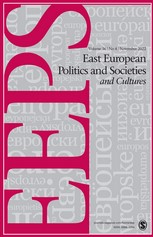How Does the “Us” versus “Them” Polarization Work? Capturing Political Antagonism with the Political Antagonism Scale
How Does the “Us” versus “Them” Polarization Work? Capturing Political Antagonism with the Political Antagonism Scale
Author(s): Lenka Hrbková, Jakub Macek, Alena MackováSubject(s): Governance, Political behavior, Politics and communication, Politics and society, Sociology of Politics, Geopolitics
Published by: SAGE Publications Ltd
Keywords: polarization; antagonism; political conflict; survey measurement; Czech Republic;
Summary/Abstract: his article introduces and validates a Political Antagonism Scale (PAS) aimed at capturing politically motivated antagonism among people in survey research. Recent trends indicate a rise in politically motivated polarization across various countries. This polarization often transcends mere ideological distance, fostering an identity-based “Us” versus “Them” political perspective. Consequently, this transforms the traditional agonistic political competition into a deeply adversarial antagonistic relationship, wherein political counterparts are viewed as enemies. Such conflict dynamics may have serious consequences for democratic politics and should be examined by scholars of political polarization across different political contexts and at different time points. However, a comprehensive survey tool addressing this form of polarization has been lacking. The PAS is designed to capture the complex nature of political antagonism and target individual antagonization towards their political outgroups on the level of social groups, political elites, the media, and everyday life. In addition, we present a regression model identifying potential sources of political antagonism. Our findings highlight the significant association between political antagonization and a prevailing sense of ontological insecurity.
Journal: East European Politics and Societies
- Issue Year: 39/2025
- Issue No: 01
- Page Range: 100-120
- Page Count: 21
- Language: English
- Content File-PDF

